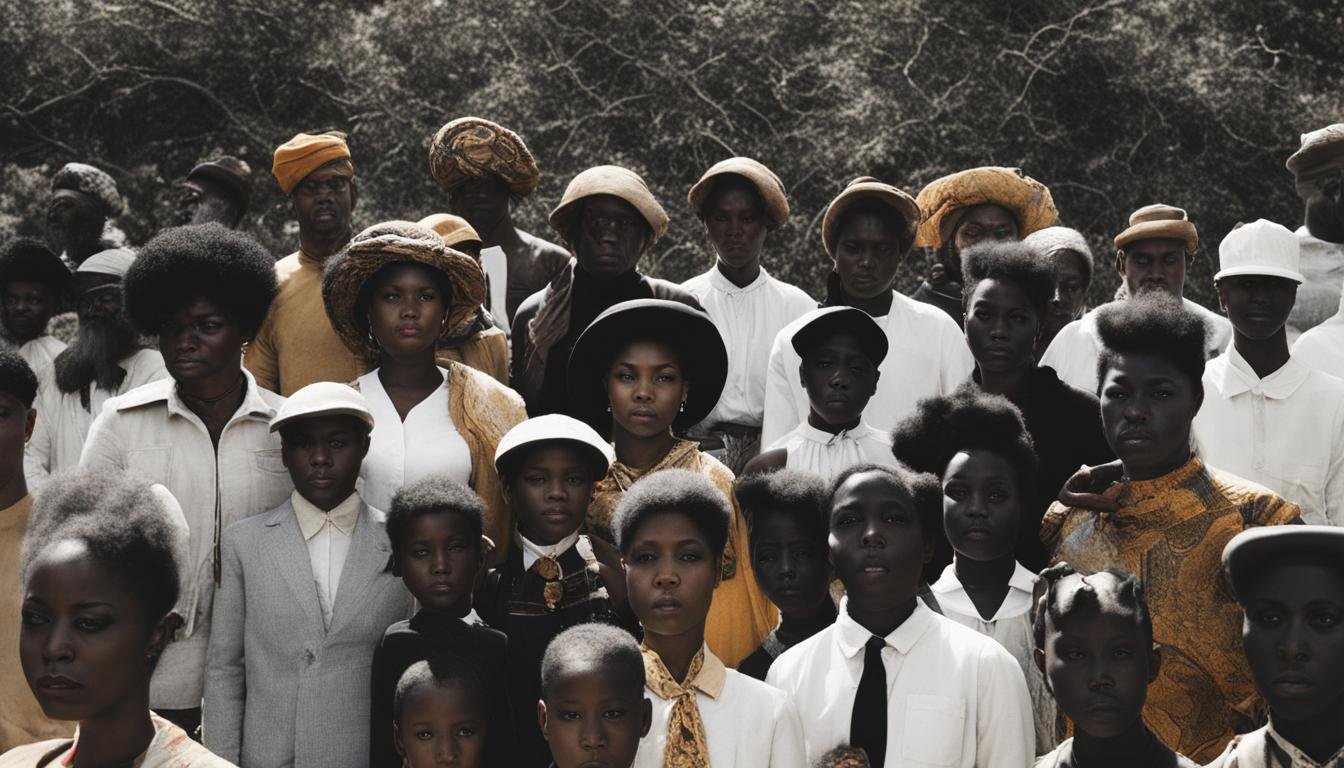What is Black Psychology Theory?
Black psychology, also known as African-American psychology and African/Black psychology, is a scientific field that focuses on how people of African descent know and experience the world. It emerged as a response to the lack of understanding of the psychology of Black people under traditional, Westernized notions of psychology.
Black psychology combines perspectives from both Black studies and traditional psychology to develop its own framework of understanding. It exists as both an academic and applied discipline, aiming to further the well-being of people of African descent through more accurate knowledge.
Black psychology has contributed to developing Afrocentric models of research, therapy, and well-being, as well as identifying inaccuracies in current psychological frameworks and advocating for increased equity and appreciation of Black excellence.
Key Takeaways:
- Black psychology is a scientific field that focuses on the experiences and understanding of people of African descent.
- It combines perspectives from Black studies and traditional psychology to develop its own framework.
- Black psychology aims to further the well-being of people of African descent through more accurate knowledge.
- It has contributed to the development of Afrocentric models of research, therapy, and well-being.
- Black psychology advocates for increased equity and appreciation of Black excellence.
The Definition of Black Psychology
The definition of Black psychology is the subject of ongoing debates within the field. Some scholars define it broadly as any attempt to understand and characterize the thoughts, behaviors, feelings, beliefs, attitudes, interactions, and well-being of individuals of African descent. Others take a more specific perspective, grounding the definition in African philosophy and heritage. Regardless of the specific definition, Black psychology provides a lens through which to study the unique experiences of people of African descent and understand the psychological phenomena that shape their lives.
Black psychology incorporates the principles of African cosmology, African realities, and African philosophy, forming its own distinct framework for understanding psychological phenomena. It acknowledges the importance of African traditions, values, and ways of knowing, recognizing that these aspects influence the thoughts, behaviors, and well-being of individuals within this community.
“Black psychology is not simply an appendage to mainstream Western psychology but rather an Afrocentric science—a body of cognitive, social, emotional, and spiritual knowledge generated through African/Black efforts, struggles, experiences, and realities. It seeks to facilitate the optimal development and functioning of African/Black individuals, families, groups, and communities.” – Obasi & Leong, 2009
By studying Black psychology, researchers and practitioners can gain insights into the unique experiences, challenges, and strengths of individuals of African descent. This understanding supports the development of culturally sensitive and appropriate interventions, policies, and therapeutic approaches that better serve the African/Black community.
Historical Influences on Black Psychology
Black psychology, as a field, has been shaped by various historical sources that have influenced the understanding and framework of its principles. One significant influence is the practices and beliefs of Ancient Egypt, which have left a lasting impact on the foundations of Black psychology.
Ancient Egypt placed great emphasis on the development of consciousness, positive relationships, and alignment with the principles of Ma’at. Ma’at, considered the goddess of truth, justice, harmony, and balance, served as a code of conduct highlighting the importance of social solidarity and unity.
The Ancient Kemetic beliefs, rooted in African philosophy, recognized the interconnectedness of the psyche and soul. These beliefs divided the psyche and soul into seven interconnected elements, each representing different aspects of humanity and the interaction between humans and the divine.
These historical influences provide a rich and unique perspective in the study of Black psychology. They contribute to the understanding of African philosophy, psyche, and soul, forming a strong foundation for the field.

Contributions of Black Psychology
Black psychology has played a pivotal role in expanding the field of psychology and advocating for the mental health and well-being of African Americans. Black psychologists have challenged prevailing beliefs and biases that perpetuated stereotypes about Black behavior and culture. By doing so, they have paved the way for more accurate research and understanding of African-American mental health.
- They have developed African-centered models of research, therapy, and well-being that prioritize the unique experiences and perspectives of Black individuals.
- Black psychology has identified and critiqued the limitations of current psychological frameworks, highlighting the need to consider cultural, historical, and systemic factors that shape the African-American experience.
- This advocacy has resulted in increased equity and appreciation of Black excellence within the field of psychology, challenging the Eurocentric approach that has long dominated the discipline.
Black psychologists have pioneered new approaches and frameworks that center African-American experiences and acknowledge the impact of oppression, discrimination, and resilience on mental health. By integrating cultural and historical contexts, they have enriched psychological theories and therapeutic practices, ultimately enhancing the well-being of African Americans.
“Black psychology provides a critical perspective that acknowledges the unique experiences of African Americans, defying the limitations of traditional psychological frameworks. Through their work, Black psychologists have created space for healing, empowerment, and the advancement of Black mental health and well-being.”
To illustrate the contributions of Black psychology, consider the following example. Dr. Joy DeGruy’s groundbreaking research on Post-Traumatic Slave Syndrome explores the intergenerational impact of slavery and racial trauma on African Americans. Her work offers insights into the psychological and emotional repercussions of historical oppression and contributes to a deeper understanding of African-American mental health.
Black psychology continues to drive important conversations and advancements in the field, challenging existing paradigms and providing more comprehensive approaches to mental health and well-being for African Americans. As the field evolves, it emphasizes the need to address and dismantle systemic racism while advocating for equitable access to mental health services for all individuals.
Impact on the Discipline of Psychology
Black psychology has had a profound impact on the discipline of psychology, challenging long-standing Eurocentric approaches and shedding light on the pervasive racism that exists within the field. The contributions of Black psychologists have been instrumental in reshaping the way psychology understands and studies Black behavior and culture, leading to a more inclusive and accurate understanding of the human experience.
One significant aspect of the impact of Black psychology is its critique of Eurocentric approaches that have historically dominated the field. These approaches often perpetuate racial biases and fail to adequately address the unique experiences and realities of Black individuals. By questioning and challenging these approaches, Black psychologists have pushed for a more equitable and comprehensive understanding of human psychology.
Black psychologists have provided alternative perspectives and theories that better reflect the experiences of Black individuals. They have highlighted the importance of considering cultural, historical, and social factors in understanding psychological phenomena. This shift has allowed for a deeper exploration of the effects of racism on mental health and the development of resilience and strength within the Black community.
“Black psychology challenges the notion that psychology is a universal discipline that applies to all people equally. It emphasizes the need for a more nuanced understanding of the diverse ways in which people experience the world.” – Dr. Joy DeGruy
The impact of Black psychology can be seen in the shift away from deficit-based models of research and therapy that focus solely on pathology, and towards strengths-based approaches that celebrate the resilience and excellence of Black individuals. This shift has not only influenced the practice of psychology but has also shaped the development of new psychological frameworks and theories that are more relevant, accurate, and inclusive.
In essence, Black psychology has forever changed the landscape of psychology by challenging deep-seated biases, highlighting the impact of racism, and advocating for a more comprehensive understanding of Black behavior and culture. It has paved the way for a more equitable and inclusive discipline that seeks to address the diverse needs and experiences of all individuals.
Impact of Black Psychology
| Eurocentric Approaches | Fail to adequately address the experiences of Black individuals. |
|---|---|
| Racism in Psychology | Brought attention to racial biases and their effect on research and theories. |
| New Psychological Frameworks | Developed theories and frameworks that are more accurate and inclusive. |
| Strengths-Based Approaches | Shifted focus from deficit-based models to celebrating resilience and excellence. |
| Inclusive Discipline | Promoted a more equitable understanding of human behavior and culture. |
Methodological Approaches in Black Psychology
Black psychology employs various methodological approaches to challenge traditional paradigms within the field. Three key approaches that have shaped the unique perspective and contributions of Black psychology are deconstruction, reconstruction, and construction.
Deconstruction: This approach involves critically analyzing and challenging prevailing beliefs and assumptions in psychology regarding Black behavior and culture. By examining these assumptions, Black psychologists aim to deconstruct biased and limited perspectives that have traditionally marginalized the experiences of African American individuals.
“Deconstruction enables Black psychologists to dismantle the existing psychological frameworks that perpetuate stereotypes and reflect Eurocentric biases, opening the path for a more inclusive and accurate understanding of Black psychology.”
Reconstruction: Reconstruction in Black psychology focuses on reimagining and creating new theories and frameworks rooted in the African/Black psychology tradition. By drawing from African philosophies, cosmologies, and historical experiences, Black psychologists seek to develop theories that better reflect the unique lived experiences of Black individuals and communities.
Construction: The methodological approach of construction involves actively participating in the process of knowledge creation and contributing to the development of new psychological theories and models. Black psychologists emphasize the importance of African-centered research methods and African-based knowledge systems to challenge the dominance of Eurocentric theories.
These methodological approaches play a vital role in addressing the limitations and biases of traditional psychology while promoting a more accurate, comprehensive, and culturally sensitive understanding of Black psychology.

Black Psychology and Positive Psychology
Black psychology serves as a foundation for the positive psychology movement, highlighting the principles of optimal psychology and emphasizing the interconnectedness of all living beings. It recognizes the significant influence of cultural and spiritual factors in shaping healthy mindsets and overall well-being. By focusing on the collective growth and well-being of communities, optimal psychology challenges the Western notion of individualism.
Black psychology emphasizes the strengths and resilience of Black individuals and communities. It highlights the importance of cultural and spiritual factors in promoting psychological well-being. By acknowledging the interconnectedness of all people and aspects of life, Black psychology offers a unique perspective on positive psychology.
Black psychology recognizes that true well-being is not an individual pursuit but a collective effort rooted in cultural and spiritual factors.
Through its emphasis on cultural and spiritual influences, Black psychology challenges traditional Western notions of psychological assessment and treatment. It promotes a holistic approach that considers the broader context and experiences of individuals of African descent.
By integrating cultural and spiritual factors into the framework of positive psychology, Black psychology contributes to a more inclusive understanding of well-being and mental health. It expands the reach of positive psychology to encompass diverse perspectives and fosters a more comprehensive approach to human flourishing.
Black psychology and positive psychology share a common goal of promoting psychological well-being, but Black psychology offers a distinct and culturally sensitive perspective. It highlights the unique strengths and resilience of Black individuals and communities, ultimately enriching our understanding of optimal psychology and contributing to the broader positive psychology movement.
Key Differences Between Black Psychology and Positive Psychology
| Black Psychology | Positive Psychology |
|---|---|
| Emphasizes cultural and spiritual factors | Focuses on individual strengths and positive emotions |
| Recognizes the interconnectedness of all living beings | Emphasizes individual well-being and personal growth |
| Promotes a collective approach to well-being | Emphasizes individual agency and self-actualization |
| Centers the experiences of Black individuals and communities | Applies to a broad range of individuals and populations |
Conclusion
Black psychology is a distinct field that aims to understand the experiences and perspectives of individuals of African descent. By combining insights from Black studies and traditional psychology, it has developed its own framework for understanding human behavior and mental health in the context of Black culture and history.
The contributions of Black psychology have been significant. It has challenged entrenched beliefs and biases within the field of psychology, paving the way for more accurate research, therapy, and well-being models that are specific to the unique needs of Black individuals and communities. Black psychology has also advocated for increased equity and appreciation of Black excellence, challenging the Eurocentric perspective that has historically dominated the discipline.
Black psychology has had a profound impact on the study of psychology as a whole. Its emphasis on deconstructing prevailing theories, reconstructing new frameworks rooted in African traditions, and actively participating in the creation of knowledge has broadened our understanding of human behavior and mental health in diverse cultural contexts. By fostering a more inclusive and comprehensive understanding of human psychology, Black psychology has made invaluable contributions to the field.
FAQ
What is Black Psychology Theory?
Black psychology theory is a scientific field that focuses on how people of African descent know and experience the world. It emerged as a response to the lack of understanding of the psychology of Black people under traditional, Westernized notions of psychology. Black psychology combines perspectives from both Black studies and traditional psychology to develop its own framework of understanding.
What is the definition of Black Psychology?
The definition of Black psychology can vary, sparking ongoing debates within the field. Some define it broadly as any attempt to characterize the understandings and experiences of people of African descent. Others define it more specifically through the lens of African philosophy and heritage. Regardless of the specific definition, Black psychology focuses on the study of the thoughts, behaviors, feelings, beliefs, attitudes, interactions, and well-being of individuals of African descent.
What are the historical influences on Black Psychology?
Black psychology has been influenced by various historical sources, including the practices and beliefs of Ancient Egypt. Ancient Egypt emphasized the development of consciousness, positive relationships, and alignment with the principles of Ma’at, the goddess of truth, justice, harmony, and balance. Ma’at was considered a code of conduct and highlighted the importance of social solidarity and unity. Ancient Kemetic beliefs divided the psyche and soul into seven interconnected elements, each representing different aspects of humanity and the interaction between humans and the divine.
What are the contributions of Black Psychology?
Black psychology has made significant contributions to the field of psychology. Black psychologists have challenged prevailing beliefs and biases in psychology about Black behavior and culture, paving the way for more accurate research and understanding of African-American mental health. They have developed African-centered models of research, therapy, and well-being that consider the unique experiences and perspectives of Black individuals. Black psychology has also identified and critiqued the limitations of current psychological frameworks, advocating for increased equity and appreciation of Black excellence.
What is the impact of Black Psychology on the discipline of Psychology?
Black psychology has had a significant impact on the discipline of psychology. It has challenged and questioned the prevailing Eurocentric approaches, highlighting the racial biases inherent in many psychological theories and measures. Black psychologists have provided alternative perspectives and theories that better reflect the experiences and realities of Black individuals. Their work has led to a shift in psychological research on Black people, moving away from deficit-based models and focusing on strengths and resilience. Black psychology has forever changed the way psychology understands and studies Black behavior and culture.
What are the methodological approaches in Black Psychology?
Black psychology utilizes various methodological approaches to challenge traditional psychological paradigms. Three key approaches are deconstruction, reconstruction, and construction. Deconstruction involves critically analyzing and challenging prevailing beliefs and assumptions in psychology about Black behavior and culture. Reconstruction focuses on reimagining and creating new theories and frameworks rooted in African/Black psychology tradition. Construction involves actively participating in the process of knowledge creation and contributing to the development of new psychological theories and models.
What is the relationship between Black Psychology and Positive Psychology?
Black psychology can be seen as a precursor to the positive psychology movement. Through the concept of optimal psychology, Black psychologists emphasize the interconnectedness of all living people and things. They recognize the importance of cultural and spiritual factors in shaping healthy mindsets and well-being. Optimal psychology challenges traditional Western notions of individualism and focuses on the collective well-being and growth of communities. By highlighting the strengths and resilience of Black individuals and communities, Black psychology contributes to the positive psychology movement.
What is the summary of Black Psychology Theory?
Black psychology is a distinct field that focuses on understanding how people of African descent experience and navigate the world. It combines perspectives from both Black studies and traditional psychology to develop its own framework of understanding. Black psychology has made significant contributions to the field of psychology, challenging prevailing beliefs and biases. It has paved the way for more accurate research, therapy, and well-being models specific to Black individuals and communities. By advocating for increased equity and appreciation of Black excellence, Black psychology has shaped the discipline of psychology and promoted a more inclusive and comprehensive understanding of human behavior and mental health.






